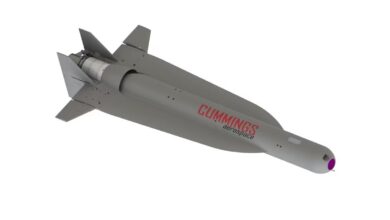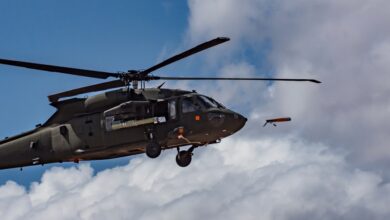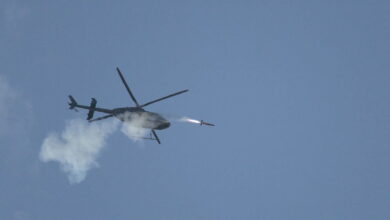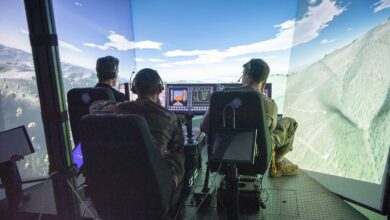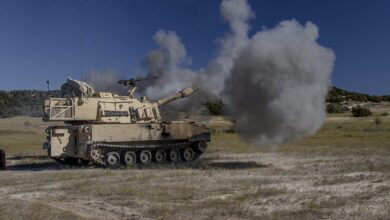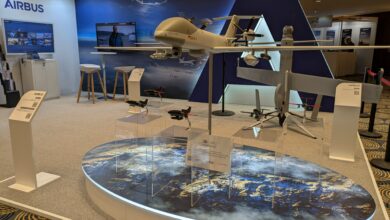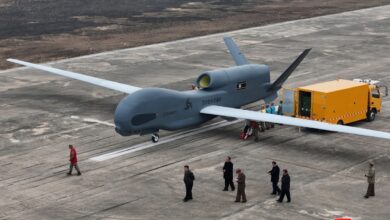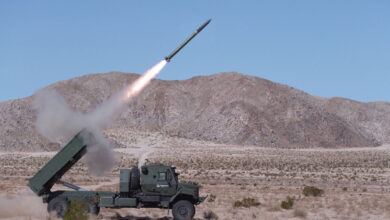Raytheon has tested the interoperability of improved radar and effectors with a counter-drone solution of the US Army during the service’s annual tactical demonstration.
The trial saw the company’s Ku-band radio Frequency (KuRFS) and Coyote family of effectors support “detect and defeat” missions of the army’s Low, slow, small-unmanned aircraft Integrated Defense System (LIDS) platform.
Also developed by Raytheon, LIDS is the army’s “go to” counter unmanned system capability incorporating various technologies to maintain dominance over growing drone threats.
It has fixed and mobile configurations for stationary base or site protection and unconventional or temporary contingency locations.
‘Another Milestone’
During the event, the KuRFS 360 radar traced the maneuvers of a complex drone swarm of 30 systems.
Meanwhile, Coyote tube-launched projectiles intercepted targets in single drone and swarm simulations, validating their efficiency in cutting timelines during engagements against adversary assets.
The test validated the latest hardware and software revamps applied to both technologies.
Overall, the KuRFS and Coyote demonstrated their effectiveness and met all test requirements to negate and neutralize high-speed targets, similar to tests held in 2021 and 2022.

“This marks another milestone in the proven track record of success and performance of our counter [unmanned aerial system] capabilities,” Raytheon Land & Air Defense Systems President Tom Laliberty stated.
“As the threat of unmanned systems continues to grow, the performance and reliability of a complete C-UAS system is critical – and we remain committed to the continuous improvement of these systems to provide our customers with an effective solution to stay ahead of the threat.”
US Army LIDS Project
The US Army continues to expand its LIDS anti-drone capability through modernization and training projects.
The service awarded Raytheon a $237-million contract in April to procure additional KuRFS and Coyote effectors for its LIDS system.
In 2022, the army trained with the mobile configuration of LIDS in Kuwait to prepare under a multi-national anti-ISIS formation task force based in Iraq and Syria.
Also last year, Raytheon received a $207-million contract to deliver KuRFS sensors for the LIDS.



